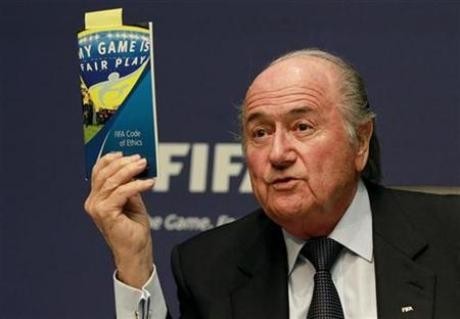
Amid controversy surrounding the 2022 world cup, which has been awarded to middle-eastern country Qatar, FIFA president Sepp Blatter admitted that the decision may have been a mistake.
"It may well be that we made a mistake at the time," Blatter was quoted as saying by Sky Sports.
The contention hinges on the extreme temperatures in Qatar during the summer months. Suggestions of holding the tournament in winter have cropped up, a proposal that would severely disrupt the European football season.
Blatter insists that the decision to award the World Cup to Qatar was made on the basis of it being a global event intended to represent countries from across the globe.
"On the other hand, you must also consider political and geo-political realities," he continued. "The World Cup is FIFA's biggest, if not only, global event. Who are we, the Europeans, to demand that this event has to cater to the needs of 800 million Europeans above all?
The FIFA president considers the Euro-centric attitude towards football to be a product of western imperialism.
"I think it is high time that Europe starts to understand that we do not rule the world anymore, and that some former European imperial powers can no longer impress their will on to others in faraway places," he added.
"We must accept that football has moved away from being a European and South American sport, it has become the world sport that billions of fans are excitedly following every week, everywhere in the world," he said.
Awarding the tournament to an Asian nation was never the issue of contention. Awarding it to a nation with a small population, small football identity and harsh weather conditions are the problem.
When asked about moving the event to winter, Blatter is hopeful that it can happen.
"After many discussions, deliberations and critical review of the entire matter, I came to the conclusion that playing the World Cup in the heat of Qatar's summer was simply not a responsible thing to do," he said.
"First, we need to see whether the owner of the FIFA World Cup, FIFA, actually agrees with my recommendation, one that I shall table at the October 3/4 ExCo meeting, and whether it follows my advice to change the dates from summer to winter," he continued. "Once the Executive Committee of FIFA has agreed to that, we can take the next step."
After the Executive Comitee agrees to the proposition, FIFA will consider changes to the football calendar.
"The next steps will include a close look at the international calendar and to establish what consequences the change would have," he said. "And we would naturally need to speak to and consult with all interested parties and stakeholders."








